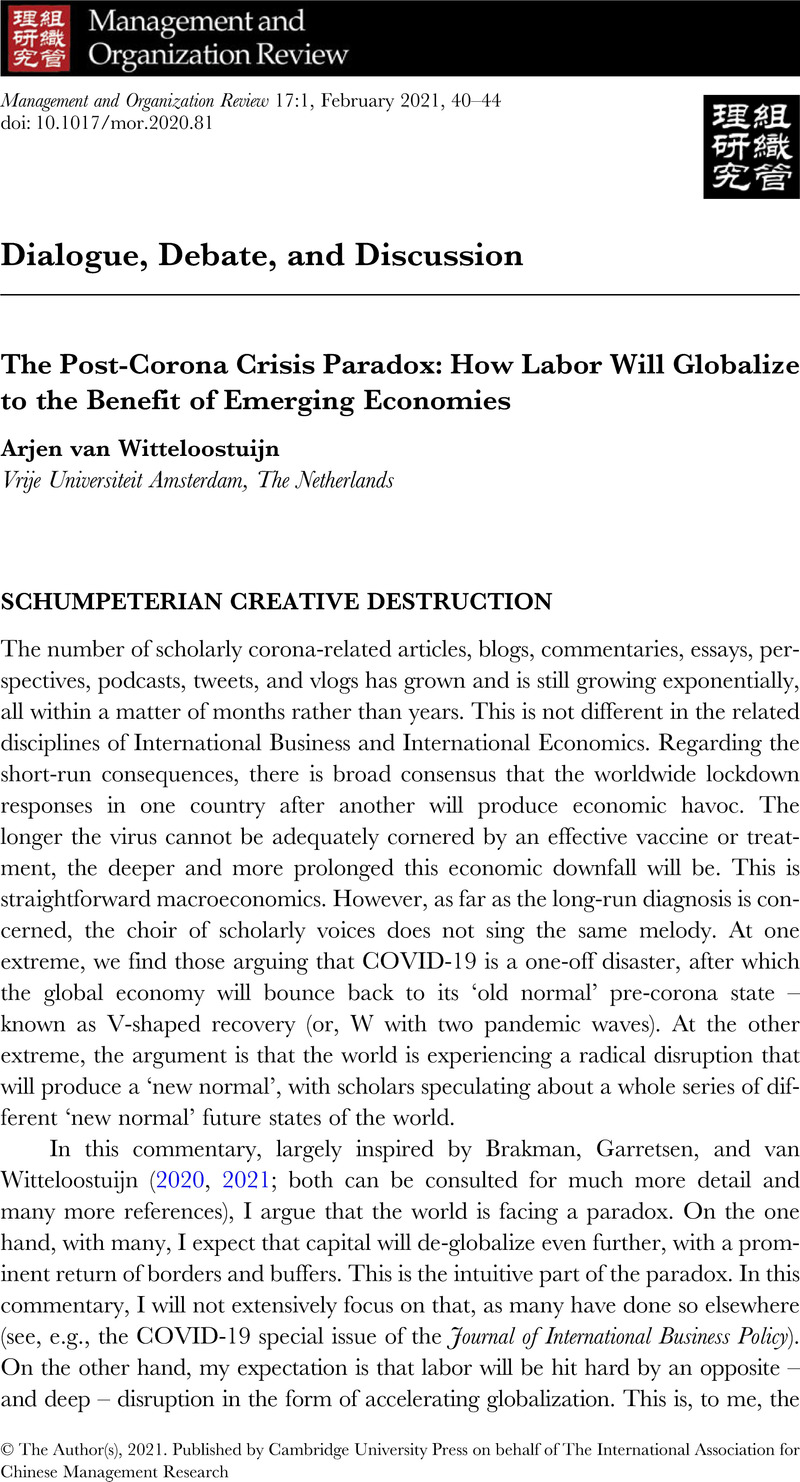Crossref Citations
This article has been cited by the following publications. This list is generated based on data provided by Crossref.
Witt, Michael A.
Li, Peter Ping
Välikangas, Liisa
and
Lewin, Arie Y.
2021.
De-globalization and Decoupling: Game Changing Consequences?.
Management and Organization Review,
Vol. 17,
Issue. 1,
p.
6.
Munteanu, Dorinela Ruxandra
Vanderstraeten, Johanna
van Witteloostuijn, Arjen
and
Cambré, Bart
2023.
A systematic literature review on SME internationalization: a personality lens.
Management Review Quarterly,
Vol. 73,
Issue. 4,
p.
1457.
Pham, Huy Quang
and
Vu, Phuc Kien
2023.
Contemporary Economic Issues in Asian Countries: Proceeding of CEIAC 2022, Volume 1.
p.
337.



